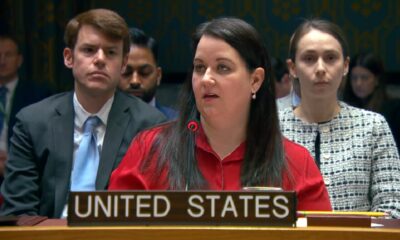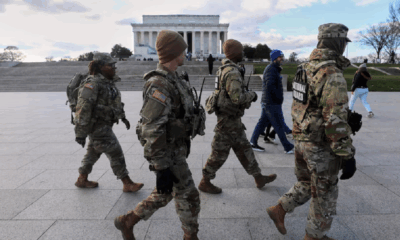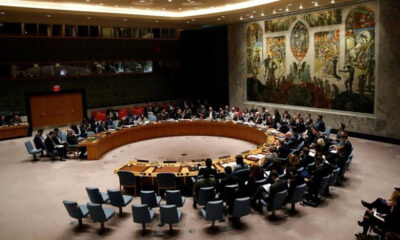Latest News
CIVIC Urges Warring Parties in Afghanistan to Protect Civilians

The Center for Civilians in Conflict (CIVIC) condemns the increase in violence across Afghanistan resulting in over 4,000 civilian deaths and injuries this year.
The organization urges all warring parties in Afghanistan to adhere to their obligations under international humanitarian law and take all measures to prevent civilian deaths and injuries.
“Too little attention is being paid to stop the violence and end the suffering of Afghan civilians,” Sahr Muhammedally, Director of MENA & South Asia, said. “All parties to the conflict must protect civilians, civilian property, and medical facilities.”
While US and Taliban peace talks were ongoing (as of September they were suspended), fighting continued with devastating consequences for civilians.
Tactics such as suicide attacks, airstrikes, and search operations conducted in rural and urban areas are killing and maiming women, men, and children who had no part in the fighting. Civilian infrastructure such as homes, mosques, schools, and health care facilities are being hit as well.
The United Nations Mission in Afghanistan (UNAMA), which has been recording casualties since 2009, attributed 37 percent of all casualties to Afghan and international forces and 52 percent to armed opposition groups in just the first half of 2019.
A joint declaration by the Taliban, Afghan civil society, and some government representatives at the Intra-Afghan Dialogue in Doha in July 2019 committed all parties to the conflict to respect and protect people and their property and to minimize civilian casualties to zero. But the violence has intensified since then.
In August, the Islamic State attacked a wedding party killing 92 and injuring 142. On September 17 a Taliban suicide attack on a campaign rally in Parwan, north of Kabul, killed at least 26 civilians and injured more than 42. The Taliban claimed responsibility for the attack, wrongly calling the campaign rally a “military target.” On September 19, the Taliban claimed responsibility for a suicide car bomb at an Afghan intelligence facility in Qalat City, Zabul, which caused severe structural damage to a hospital 20 meters away and private residences, killing 22, and wounding 90.
Afghan and international forces have also intensified airstrikes and search operations, which have resulted in a spike in civilian casualties. In August, an Afghan National Directorate of Security (NDS) raid reportedly killed 11 civilians in Paktika Province. In September, an NDS raid in Jalalabad, Nangarhar Province resulted in the deaths of four civilians, prompting the head of the NDS to resign. On September 19, a US drone strike targeting the Islamic State in Nangarhar province reportedly killed civilians and is under investigation by US forces.
“The current intensity in fighting to advance military goals, resulting in civilian harm cannot go on. All sides must review their military tactics and make determined efforts to reduce, investigate, and acknowledge civilian harm,” Muhammedally said.
Center for Civilians in Conflict (CIVIC) works with civilians and armed actors in the conflict to prevent, mitigate, and respond to civilian harm.
Latest News
Pakistan PM: We need the international community to urge the IEA to curb terrorism
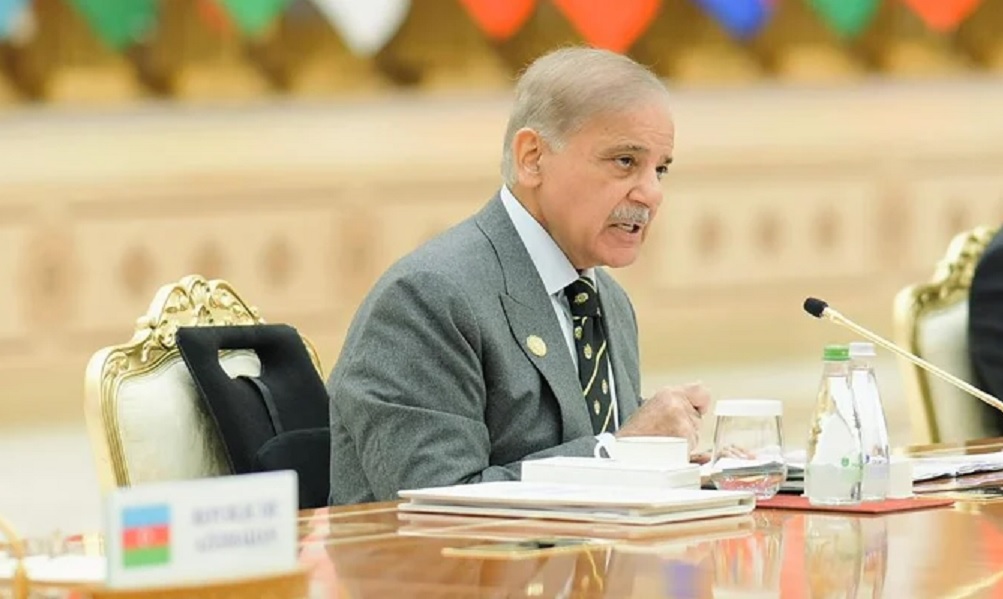
Speaking at a high-level forum in Turkmenistan dedicated to the International Year of Peace and Trust 2025, the International Day of Neutrality, and the 30th Anniversary of Turkmenistan’s status of permanent neutrality, Sharif said the region is once again facing a rising threat.
“The scourge of terrorism is raising its head yet again, and this time unfortunately from Afghan soil,” he stated. “As we are dealing with this menace, we need the international community to urge the Afghan Taliban regime (IEA) to fulfil its international obligations and commitments and rein in terrorist elements operating from its territory.”
Sharif also expressed appreciation for regional countries that have been working to de-escalate conflicts and promote stability.
“We are very grateful to our brotherly countries — Qatar, Turkey, the Kingdom of Saudi Arabia, the UAE and Iran — for their sincere desire and efforts to achieve a permanent ceasefire, which as I speak is still very fragile,” he added.
Pakistani officials have repeatedly claimed that attacks in the country are organized by militants operating from Afghan soil.
The Islamic Emirate, however, denies the allegation, saying it cannot be held responsible for security in Pakistan.
Trade between the two countries was halted on October 11 following airstrikes in Afghanistan and clashes near the Durand Line.
Latest News
Türkiye ready to help uphold Pakistan-Afghanistan truce, Erdogan tells Sharif
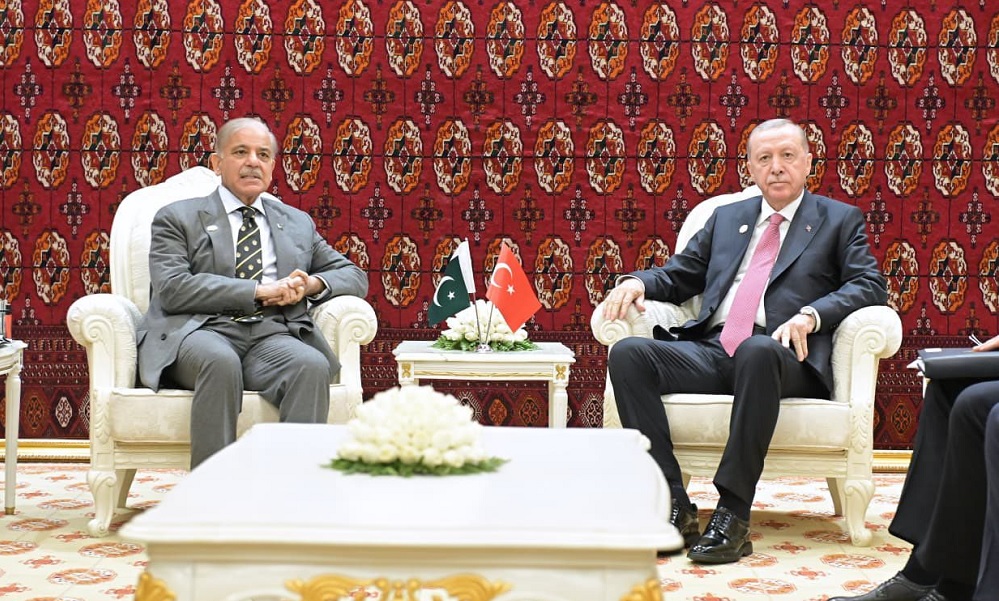
Türkiye stands ready to help sustain the truce between Pakistan and Afghanistan, President Recep Tayyip Erdoğan told Pakistani Prime Minister Shahbaz Sharif during their meeting on Friday on the sidelines of the International Peace and Trust Forum in Ashgabat, Turkmenistan.
According to Türkiye’s Directorate of Communications, Erdogan said Ankara is committed to strengthening its “good relations” with Islamabad and will work to deepen cooperation in energy, trade and investment.
Welcoming the recent extension of the Pakistan-Afghanistan ceasefire, Erdogan noted Ankara’s readiness to contribute to the mechanism established to maintain the absence of conflict.
Pakistani officials have repeatedly claimed that attacks in the country are organized by militants operating from Afghan soil.
The Islamic Emirate, however, denies the allegation, saying it cannot be held responsible for security in Pakistan.
Trade between the two countries was halted on October 11 following airstrikes in Afghanistan and clashes near the Durand Line.
Latest News
US claims 2,000 evacuated Afghans have links to terrorist groups
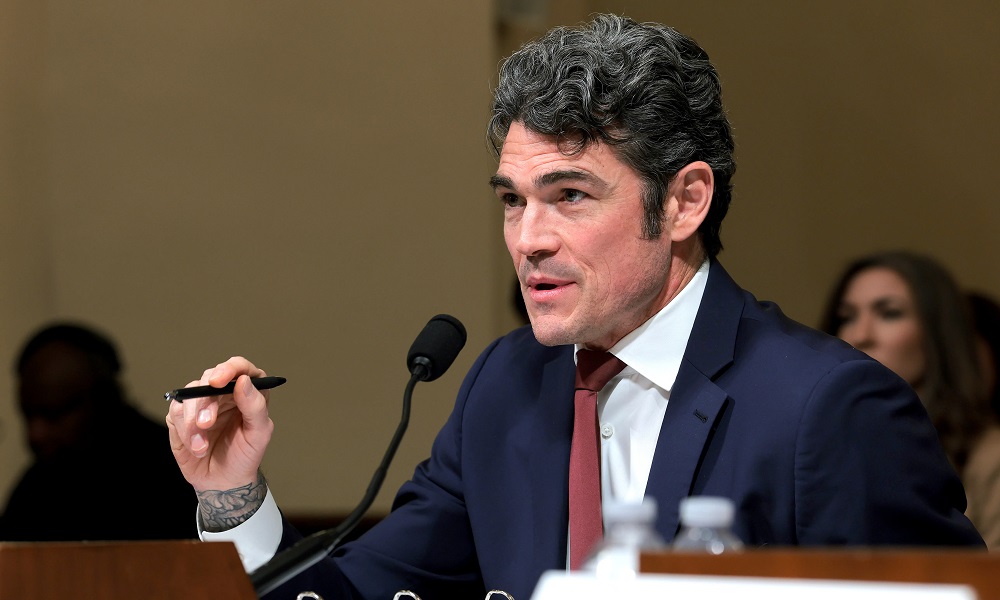
Joe Kent, Director of the U.S. National Counterterrorism Center (NCTC), told a congressional committee that two thousand Afghans evacuated to the United States in 2021 are believed to have links to terrorist organizations.
Kent said these individuals are part of a group of 88,000 Afghans who entered the United States under the “Operation Allies Welcome” program following the collapse of the former Afghan government. According to him, these evacuees “were not properly vetted,” and the screening process was insufficient.
He also referred to the recent attack in Washington, D.C., in which an Afghan evacuee shot two National Guard soldiers, killing one and injuring the other. Kent said the attacker had also arrived in the United States through the Afghan evacuation effort.
The NCTC director added that U.S. security agencies, including the FBI and the Department of Homeland Security, are jointly investigating the two thousand Afghans identified as having suspected links to terrorist organizations. He said that in addition to Afghans, U.S. authorities have also identified 16,000 people from other countries who entered the United States despite having “possible ties” to terrorist groups.
These claims come as debates continue in Washington over how the Afghan evacuation was managed and the security implications that followed.
-

 4 days ago
4 days agoIran seeks broad expansion of cooperation with Afghanistan
-

 Sport3 days ago
Sport3 days agoILT20: Desert Vipers edge Gulf Giants in historic super over thriller
-
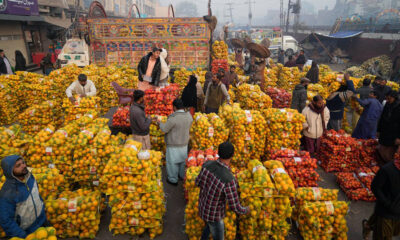
 Business5 days ago
Business5 days agoPakistan’s citrus export crisis deepens amid ongoing Afghanistan trade route closure
-
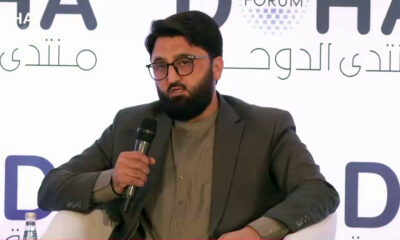
 Latest News5 days ago
Latest News5 days agoDoha Forum: Dialogue between Afghanistan and Pakistan key to regional connectivity
-

 Regional4 days ago
Regional4 days agoSix Pakistani soldiers killed in TTP attack in Kurram District
-

 Business3 days ago
Business3 days agoTrade bodies warn almost 11,000 Afghan transit containers stuck at Karachi port
-

 Latest News4 days ago
Latest News4 days agoUS reviews green cards from 19 countries; Suspends Afghan-related processing
-

 World4 days ago
World4 days agoPowerful 7.6 earthquake hits northern Japan, tsunami warnings issued





